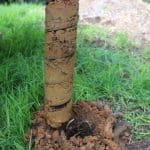Why Land Capability Assessment and Site Classifications Matter for Melbourne Developments
When planning any development project, understanding the land is just as important as designing the structure that will sit on it. At The 4 Spheres, we provide expert support in Land Capability Assessment and Site Classifications Melbourne, helping property owners, builders, and councils make informed decisions that are safe, sustainable, and fully compliant with Victorian regulations. These assessments form the foundation of successful development by ensuring that land is used in a way that preserves both environmental and structural integrity.

What is a Land Capability Assessment?
A Land Capability Assessment (LCA) is a scientific evaluation of how well a particular parcel of land can support a specific use. It looks closely at the natural features of the site—soil quality, drainage, slope, rainfall, vegetation, and proximity to waterways—to determine its suitability for development.
In Melbourne and surrounding regions, LCAs are especially important on properties that do not have access to mains sewerage. In these cases, wastewater must be treated and absorbed on-site. An LCA ensures that the land can safely handle this process without contaminating groundwater, rivers, or the wider environment.
But wastewater is just one aspect. LCAs also identify risks such as erosion potential, flooding hazards, and soil stability. With this information, developers and landowners can make better decisions about how to use the land effectively while minimising long-term risks.
Understanding Site Classifications in Melbourne
Alongside LCAs, site classifications are essential for safe building and construction. Melbourne’s soils vary significantly across the metropolitan and peri-urban regions. In some suburbs, sandy soils dominate, while in others, clay-rich soils expand and contract dramatically with moisture.
The Australian Standard AS 2870 outlines how soils are classified into categories such as:
- Class A – Stable soils with little or no ground movement.
- Class S – Slightly reactive soils that may move a little with moisture.
- Class M – Moderately reactive clays that require stronger footing systems.
- Class H – Highly reactive clays with significant expansion and contraction.
- Class E – Extremely reactive soils with very high movement potential.
- Class P – Problem sites that may include uncontrolled fill, landslip hazards, or soft soils needing special design solutions.
Getting the classification right is critical. If a home is built on reactive soil without the correct footing design, foundations can crack, walls can shift, and repair costs can skyrocket. Proper site classifications in Melbourne safeguard against these risks.
Why Both Assessments Are Important
When combined, LCAs and site classifications give a complete picture of a property’s potential and limitations. Their importance lies in four key areas:
-
Environmental Protection
By ensuring that wastewater is managed responsibly and that soil stability is respected, LCAs prevent contamination and land degradation.
-
Regulatory Compliance
Local councils often require an LCA as part of planning permit applications. Site classifications are mandatory under Australian Standards for building approvals.
-
Risk Reduction
Early identification of soil and site limitations helps avoid expensive design changes, construction issues, or environmental problems later on.
-
Long-Term Sustainability
Both assessments promote development that works with natural systems rather than against them, ensuring safer outcomes for future generations.
In short, LCAs and site classifications are not just regulatory “boxes to tick.” They are tools that protect landowners’ investments and safeguard Melbourne’s environment.

The Process of a Land Capability Assessment
At The 4 Spheres, our LCAs follow a thorough process to deliver reliable results. The steps usually include:
- Initial Consultation – Understanding the client’s goals and intended land use.
- Site Investigation – Fieldwork to record slope, drainage, vegetation, and soil layers.
- Soil Sampling and Testing – Measuring permeability, texture, and ability to handle wastewater.
- Hydrological Assessment – Considering rainfall, runoff patterns, and risk of erosion.
- Environmental Risk Analysis – Identifying nearby waterways, sensitive habitats, or other potential hazards.
- System Design Recommendations – Suggesting suitable wastewater treatment systems or land management practices.
- Final Reporting – Preparing a document for council or planning approval.
This process not only ensures compliance but also equips landowners with a clear understanding of how their land should be managed responsibly.
Site Classifications: What They Mean for Your Build
Site classifications have a direct impact on construction design. For example:
- A house built on Class A soil can use conventional footings, saving on cost and complexity.
- A property with Class H soil requires reinforced foundations, which cost more but prevent damage in the long run.
- A Class P site may need additional geotechnical investigation, ground improvement, or specialist engineering solutions.
Builders rely on accurate site classification reports to design safe and cost-effective foundations. Without them, property owners risk structural issues that could cost far more than the price of the assessment.
Practical Benefits for Landowners and Developers
Both LCAs and site classifications deliver practical benefits that extend beyond compliance:
- Better Planning Decisions – Know upfront whether a site is suitable for building, farming, or subdivision.
- Cost Savings – Avoid unexpected redesigns, remediation works, or costly system failures.
- Property Value – Proper assessments reassure future buyers and councils of the site’s suitability.
- Environmental Stewardship – Development that respects natural systems builds stronger community trust.
By taking these steps early, landowners position their projects for success.
How The 4 Spheres Supports Melbourne Projects
At The 4 Spheres, we combine scientific expertise with practical experience to deliver assessments that councils trust and clients find easy to understand. Our services include:
- Comprehensive Land Capability Assessments for unsewered sites and rural developments.
- Accurate Site Classifications to ensure safe and compliant foundation design.
- Clear, Professional Reporting that meets all council and regulatory requirements.
- Tailored Solutions designed around each property’s unique challenges.
- Environmental Awareness with a focus on long-term sustainability.
Our goal is to help clients move forward confidently, knowing that their project rests on solid ground—literally and figuratively.
Conclusion
As Melbourne continues to expand, thoughtful land use has never been more important. Land Capability Assessment and Site Classifications Melbourne are the cornerstones of responsible development, ensuring projects are safe, compliant, and environmentally sustainable. By investing in these assessments early, landowners, developers, and councils avoid costly setbacks and protect both their assets and the natural environment.For expert support you can trust, choose The 4 Spheres to guide your project from the ground up.
Comments
Post a Comment